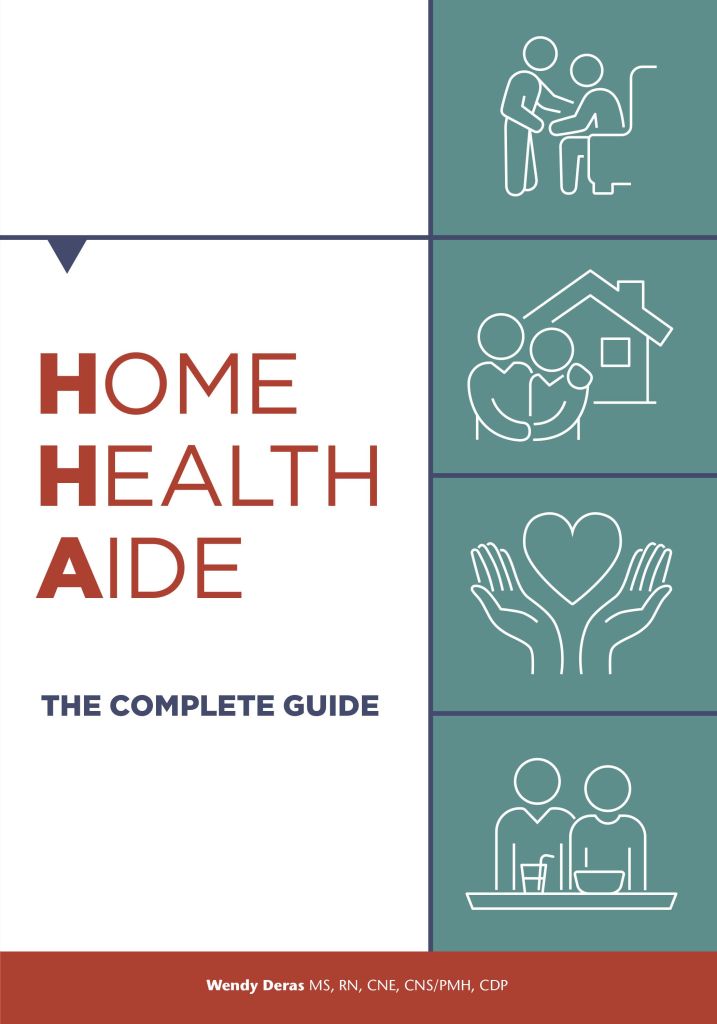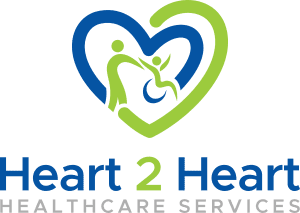Home Health Care 101: A Comprehensive Guide to Finding the Right Support for Your Loved Ones. Discover The ultimate guide To home health care! Learn how To find The best support for your loved ones with easy steps & friendly advice.
A Comprehensive Guide to Finding the Right Support for Your Loved Ones
Understanding Home Health Care
Home health care represents a spectrum of medical and nonmedical services delivered at home. This model empowers individuals who may need assistance due to illness. Recovery from surgery. Or chronic conditions. Many prefer receiving care in familiar environments rather than hospitals or nursing facilities. Understanding this concept helps families make informed decisions about medical needs.
Many types of services exist within home health care—including skilled nursing. Physical therapy. And personal care aides. Families need comprehensive knowledge about these services when evaluating options for their loved ones. Seeking help from professionals to navigate this landscape often proves beneficial.
For further guidance. Consider consulting valuable resources like Amedisys’ Home Health Complete Guide. This guide offers detailed insights into various aspects of home health care services. Ensuring families have access to essential information.
Types of Home Health Care Services
Skilled Nursing Care
Skilled nursing care encompasses medical services delivered by registered nurses. These professionals manage treatment plans. Administer medications. And perform procedures requiring clinical expertise. Family members can rest easier knowing their loved ones receive quality care designed around individual medical needs.
Conditions that may necessitate skilled nursing care include postsurgical recovery. Chronic illness management. And wound care. Continuous oversight by a trained medical professional often ensures adherence to treatment plans. Leading to safer healing processes. This level of care often requires a physician’s authorization. Facilitating proper management and coordination.
Physical Therapy
Physical therapy plays a critical role in rehabilitation. Aimed at improving mobility and overall physical function. Skilled therapists evaluate patients. Creating tailored exercise regimens focusing on strength. Balance. And coordination. This personalized approach addresses individual requirements. Making recovery more efficient.
Patients recovering from strokes. Surgeries. Or injuries significantly benefit from physical therapy. Therapists often provide education regarding mobility aids. Ensuring safer navigation within homes. Understanding exercises prescribed during therapy can empower patients. Fostering selfmanagement and independence.
Personal Care Aides
Personal care aides provide essential support with daily activities such as bathing. Dressing. Grooming. And meal preparation. Families often choose this service when managing basic tasks become overwhelming for their loved ones. Aides serve as compassionate companions. Enhancing emotional wellbeing while promoting dignity and comfort.
Support from personal care aides allows family members respite. Relieving stress associated with caregiving duties. This service not only assists with physical tasks but also offers social interaction. Combatting feelings of loneliness many older adults experience. Recognizing this holistic aspect proves crucial in considering home health care options.
Evaluating Home Health Care Providers
Researching Options
Finding ideal home health care providers requires thorough research. Families should start by seeking recommendations from healthcare professionals. Friends. Or local community organizations. Checking online resources and reviews can highlight reputable agencies. Ensuring families receive quality service.
Inquiries regarding certifications and licenses can help families verify a provider’s qualifications. Home health care services need adherence to specific regulations ensuring safety and quality of care. Familiarizing oneself with local and national standards aids in evaluating potential providers significantly.
Interviewing Potential Caregivers
Once potential providers have been identified. Interviewing caregivers becomes essential. Asking targeted questions regarding experience. Training. And approach to care helps families gauge compatibility. Engaging in candid discussions regarding loved ones’ needs fosters understanding around specific expectations from caregivers.
Listening carefully to caregivers’ responses can provide insight into their dedication. Passion. And overall approach. Observing interactions between caregivers and loved ones during a trial visit offers a glimpse of potential caregiver dynamics. Such evaluations help families make informed final decisions for their loved ones’ care.
Costs and Insurance Coverage
Understanding Expenses
Cost considerations remain crucial when evaluating home health care options. Families must be prepared for potential expenses associated with services. Including skilled nursing. Therapy sessions. Or personal care aides. Rates can vary significantly by location. Service type. And required hours. Necessitating thorough budgeting and planning.
It’s vital for families to inquire about payment structures beforehand. Many services offer flexible payment options or sliding scale fees based on income. Addressing these aspects upfront can alleviate financial anxieties often accompanying home health care needs.
Insurance and Medicare Coverage
Many families may find relief knowing that Medicare and various insurance plans cover specific home health care services. Understanding eligibility requires careful examination of policies and communication with insurance providers. Families should confirm which services and hours their plans cover. Ensuring proper billing.
Utilizing external resources such as August Learning Solutions’ guide can clarify coverage specifics. This proactive approach allows families to maximize available benefits. Alleviating financial burdens while ensuring loved ones receive necessary support.
Benefits of Home Health Care
Personalized Care
One significant advantage of home health care lies in its personalized approach. Care plans designed around individual needs result in tailored services addressing unique challenges and preferences. Families appreciate having caregivers dedicated solely to their loved ones. Ensuring attention to every detail.
This personalization fosters improved recovery outcomes. As providers closely monitor patients’ progress and adapt care plans accordingly. Such adaptability reduces hospital readmission rates and minimizes complications associated with neglecting care specificities.
Emotional Benefits
Home health care can substantially enhance emotional wellbeing. Receiving care in familiar surroundings promotes comfort. Security. And dignity for individuals requiring assistance. Avoiding transitions to institutional settings often reduces anxiety and distress. Leading to better overall health outcomes.
Additionally. Caregivers provide companionship. Promoting social interaction and mitigating feelings of isolation. Engaging in meaningful conversations. Activities. And sharing memories fosters emotional connections. Significantly contributing to improved quality of life.
Key Features of Home Health Care
- 🏠 Customized care plans
- 👩⚕️ Skilled nursing services
- 🤝 Personal care assistance
- 🏃 Physical and occupational therapy
- 📞 24/7 available support
- 💬 Emotional and social companionship
Comparing Home Health Care Options
| Service Type | Pros | Cons |
|---|---|---|
| Skilled Nursing Care | Highquality medical attention | Higher cost |
| Physical Therapy | Focused rehabilitation | Availability may vary |
| Personal Care Aides | Support with daily activities | Less medical oversight |
Finding Quality Resources and Support
Identifying reliable resources plays a significant role in ensuring successful home health care experiences. Family members should actively seek local nonprofits and support groups focused on caregiving education. Many organizations offer workshops. Advice forums. And networking opportunities for families navigating this journey.
Networking with other families experiencing similar situations creates a supportive community. Sharing personal experiences enriches understanding of challenges and practical solutions encountered during caregiving. Engaging with peers fosters connection and empathy. Often alleviating feelings of isolation.
Utilizing online platforms such as Heart 2 Heart can be another effective way for families seeking resources. This platform provides an expansive array of information dedicated to enhancing knowledge surrounding home health care challenges. Creating lasting connections within the community.

What is home health care?
Home health care refers To a variety of health care services that can be provided in a patient’s home. This type of care is typically delivered by skilled professionals. Such as nurses. Therapists, & home health aides. To help individuals recover from illness. Manage chronic conditions. Or support daily living activities.
Who can benefit from home health care services?
Individuals who have recently undergone surgery. Those with chronic illnesses. Older adults needing assistance with daily activities, & patients recovering from injuries can all benefit from home health care services. It is also useful for those who prefer To receive care in a familiar environment.
What services are typically offered in home health care?
Services can vary widely but often include skilled nursing care. Physical therapy. Occupational therapy. Speech therapy. Counseling. Personal care, & assistance with household tasks. Some agencies may also provide medical equipment & supplies.
How is home health care different from home care?
Home health care involves medical services provided by licensed professionals. While home care refers To nonmedical assistance such as help with cooking. Cleaning, & companionship. Home health care is often medically necessary & may require a physician’s order.
What qualifications should home health care providers have?
Home health care providers should have The appropriate licenses & certifications. Such as registered nurses (RNs). Licensed practical nurses (LPNs). Or certified home health aides. It’s essential To ensure that The agency complies with state regulations & offers trained staff.
How do I choose a home health care agency?
When selecting a home health care agency. Consider factors such as accreditation. Reviews from past clients. The range of services offered. Staff qualifications, & costs. It’s also important To meet with agency representatives & discuss your specific needs.
Will my insurance cover home health care services?
Many insurance plans. Including Medicare & Medicaid. Cover home health care services if they are deemed medically necessary. It’s advisable To check with your insurance provider To understand your coverage options & any potential outofpocket costs.
How does a home health care plan get established?
A home health care plan is usually created by a physician in collaboration with The patient. Their family, & The home health care agency. This plan outlines The specific services required. Goals of care, & The frequency of services needed To meet The patient’s individual health objectives.
Can family members provide home health care?
Family members can provide support & assistance. But they may not have The specialized training required for certain medical tasks. It is important for patients & families To understand The limits of care family members can provide & when To rely on professional services.
What is The role of a home health aide?
A home health aide assists patients with daily living activities. Such as bathing. Dressing. Grooming. Meal preparation, & light housekeeping. They may also help monitor The patient’s health & report any changes To The healthcare team.
How often will I receive home health care visits?
The frequency of visits from home health care providers depends on The patient’s needs & The care plan created by their healthcare team. Some patients may require daily visits. While others may only need weekly or biweekly support.
What should I do if I have concerns about my home health care?
If you have concerns about The quality of care. Communication issues. Or any other aspect of home health care. It’s important To address these concerns promptly. Start by discussing your issues with The provider or agency & escalate To higher management if needed.
How can I ensure my safety with home health care?
To ensure safety during home health care. Verify The credentials of your care providers. Communicate openly with them about your health conditions, & keep emergency numbers accessible. It is also important To maintain a clean & safe home environment.
What are The rights of patients receiving home health care?
Patients receiving home health care have rights. Including The right To receive respectful & dignified care. To participate in their care decisions. To access their medical records, & To receive information about The services provided. Understanding these rights helps ensure a positive care experience.
Can home health care services be used for endoflife care?
Yes. Home health care services can provide support for individuals in need of hospice or palliative care. These services focus on comfort. Symptom management, & quality of life for patients at The end of life. Allowing them To remain at home if they choose.
Conclusion
In conclusion. Home health care can be a lifeline for your loved ones. Helping them maintain their independence while receiving The support they need. By understanding their specific needs & researching available options. You can find The right care team tailored To fit your family’s situation. Don’t hesitate To ask questions & seek recommendations To ensure you choose quality care. Remember. It’s all about creating a comfortable & safe environment for your loved ones so they can thrive. With The right support in place. You can have peace of mind knowing they are in good hands.

